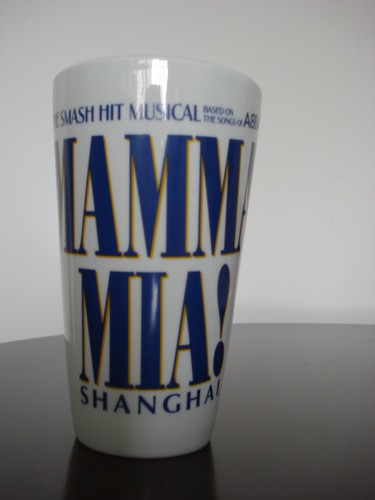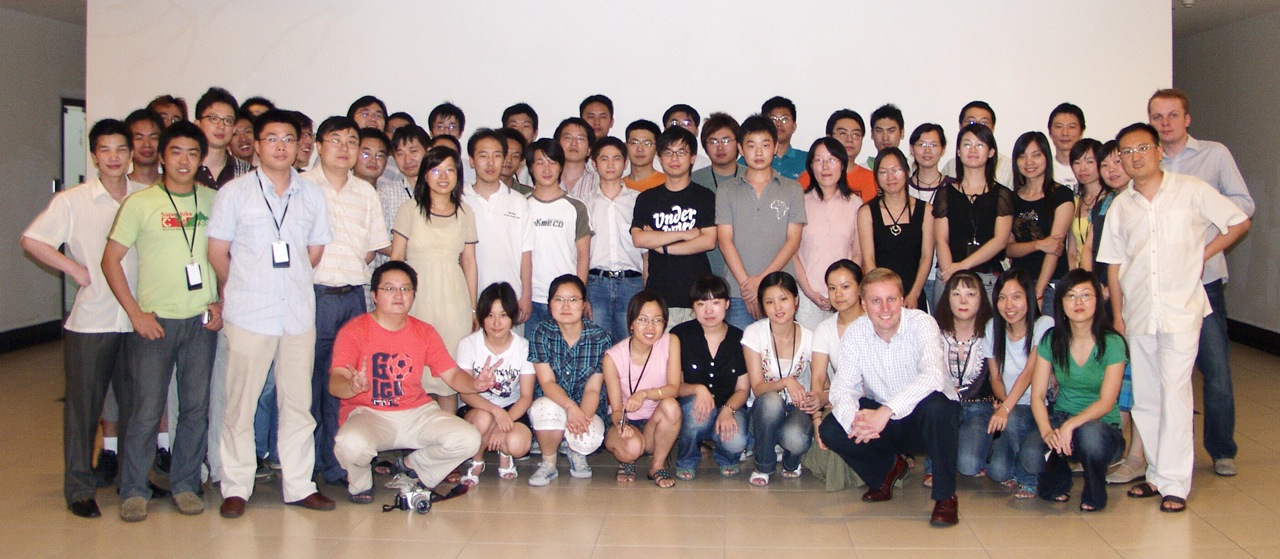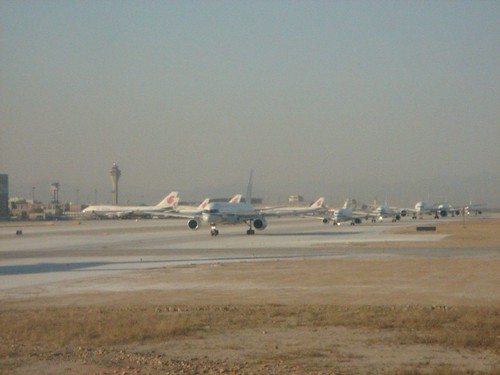Today was not my day. I planned to do a lot of things, but when the internet did not work this morning (once again) my whole schedule fell apart. I wrote a column for a Dutch magazine, but could not do any research online, so I was not too satisfied with the result. I checked my email on my phone, but it’s a nuisance to answer emails with a small keyboard. We had to wait at home for a person to repair the internet (so we could not go out), but when he finally arrived he could not find the problem and we are still without internet.
I wanted to do something and decided to go to Xujiahui and check if they have any black market iPhones already. The iPhone fever somehow intirigued me, I still don’t think this is a great phone, but I’ll probably buy one anyway to try. But when I left the building it started to rain heavily, so I went back home. I started to read a book, but still felt I needed to do something. So when the rain stopped after an hour or so I decided to go for a walk in a part of town where I don’t come often. My wife did not feel very well, and decided to stay home.
I took a cab to the Ritz-Carlton and took a left from there onto Xikang Lu. I occasionally drive through here, but the last time I walked here was during a visit to the Jade Buddha temple about 4 years ago. Lots has changed, but not in a negative way. Yes, there are a lot of new apartment buildings, but there are also lots of old areas left. And some of them are totally redeveloped, and could really change this part of town in the near future.
Especially the New Factories area (Xikang Lu / Yuyao Lu) was impressive. Several good bars and restaurants, including Cafe Montmartre (my favourite lunch place in its old location before the Xiangyang market was torn down) and a City Diner. But there was nobody there… Maybe because of the rain, but still I had expected more people here on a Saturday afternoon. Possibly people don’t know about it yet, for me it was also my first visit here. But I will be back for sure.
On my way back I walked through Shanxi Road, and passed an old villa that my former company (China Bay Partners) had almost rented as an office. At that time (2 years ago) the area was not that impressive, but now it had turned into an upper class location. Among others there were a Cambodian Spa, a store with Mediterranean food products, and a high-end wine cellar. It still amazes me how things change in this city.
I ended my walk at Malone’s, where I am now sitting on the terrace having a Tiger beer (well, two actually) while using their free wifi. Well deserved after a two hour walk in 30+ degree temperatures and after being without internet for almost 24 hours.



